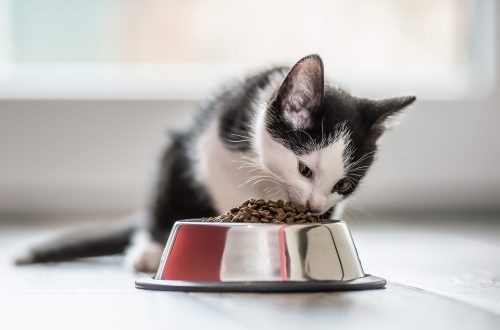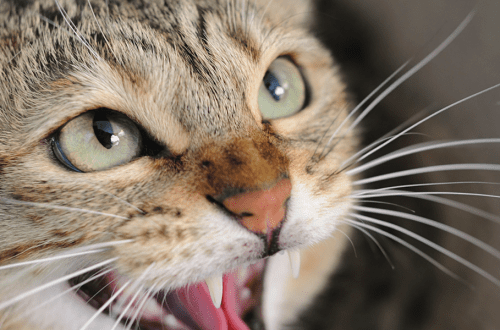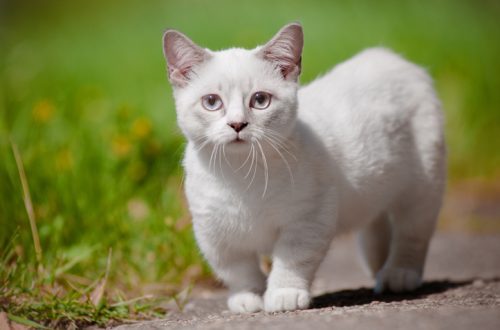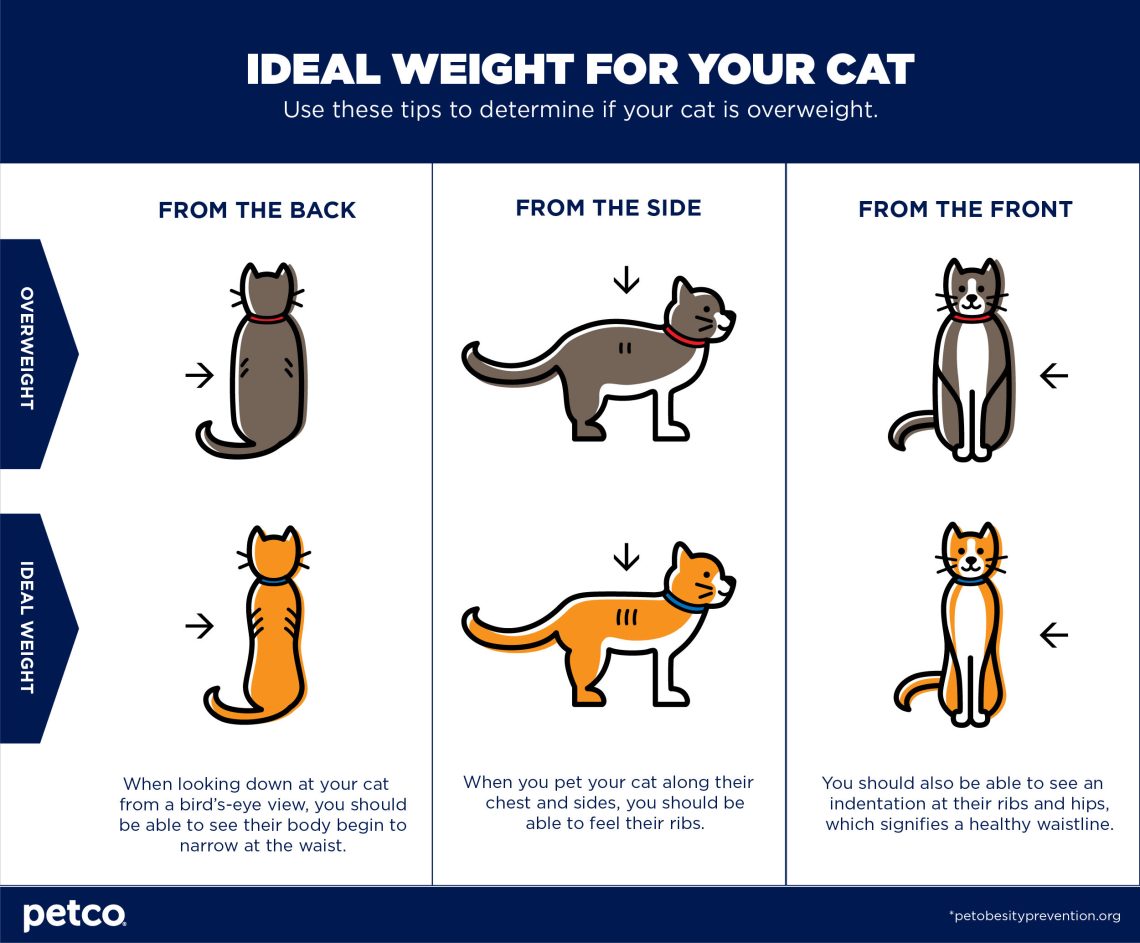
Is my cat overweight?
“Is my cat overweight?” You may have wondered this question, noticing that your pet has become too fluffy. Weight gain is a fairly common problem in cats, especially as they get older and their metabolism slows down. In fact, the Pet Obesity Prevention Association estimates that almost 60 percent of cats in the United States are overweight. Being overweight can cause and exacerbate your cat’s health problems, so you need to know how to recognize that your cat has become overweight so that you can take appropriate action to reduce the negative effects on her health. In this article, you will learn how to determine if your cat is overweight.
Contents
Is my cat overweight?
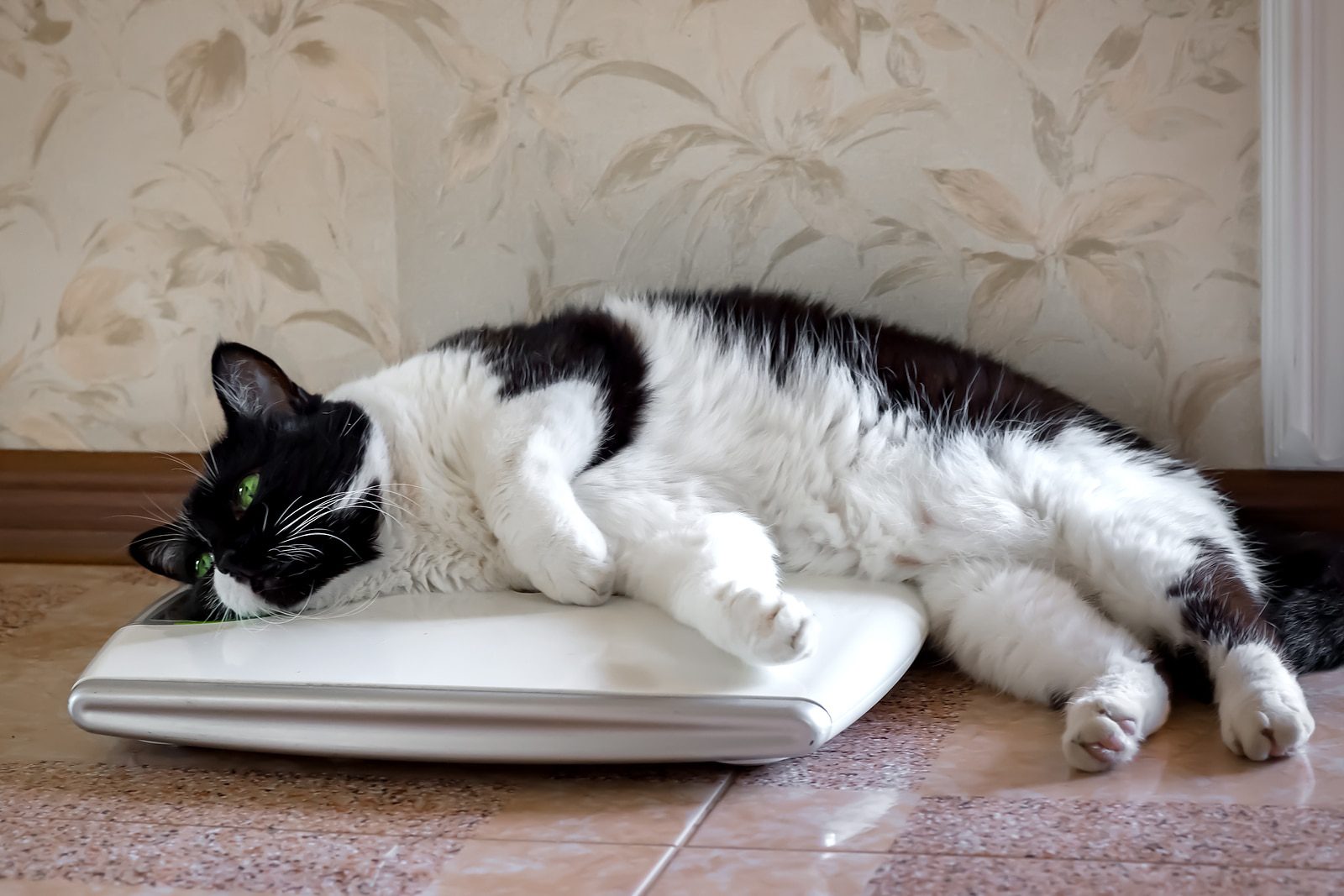
What are the diagnostic methods? One way to tell if your cat is overweight is to run your hands over her ribs. In a healthy cat, the fat layer should feel no thicker to the touch than the layer on the back of your hand, experts at Cummings School of Veterinary Medicine at Tufts University say. If you have to press harder to feel her ribs, she’s probably overweight. If her ribs are not palpable at all, your cat may well be obese.
Another way to find out is to use a fatness rating on a scale of 1 to 5. Stand up and look down at your pet when she is standing. If she is of normal weight, you should see a slight indentation above the hips that resembles a waist, although if she has long hair, it can be difficult to see. If her sides bulge, she’s probably overweight. If these methods do not convince you and you are still not sure about your assumptions, then you should take the cat to the veterinarian, who will weigh it and assess the general physical condition. Asking your doctor is the surest way to find out if your pet needs to lose weight.
How Being Overweight Affects Your Cat
Being overweight has a psychological impact on humans, and it’s the same with cats. Sure, overweight cats don’t spend a lot of time staring at themselves in the mirror and wanting to look their best in a bathing suit, but they may refrain from normal feline activities like playtime and personal hygiene. Not only can this lead to skin problems and possible urinary tract infections, Catster warns, it can also be a sign of depression or increased anxiety in the animal. According to The Telegraph, a study published in the Journal of Veterinary Behavior shows that cats and dogs can sometimes eat stress or negative emotions. In addition, overweight cats are more prone to diseases such as diabetes, arthritis and joint pain, experts at the Cummings School emphasize. They also note that being overweight can cause chronic inflammation, a condition that negatively affects the overall health of pets, while not all of its consequences are known to veterinarians and pet owners.
Causes of weight gain in cats
According to Wag!, the most common causes of overweight in cats are overfeeding and lack of exercise. Sometimes owners don’t even realize it, especially as cats get older and their metabolism and activity levels slow down. An older cat has very different nutritional needs than when she was younger. If you continue to feed her into adulthood in the same way as you have always fed her, this is the fastest way to overweight. This is another reason to visit the veterinarian if you notice that your cat is getting better.
Cats at increased risk of weight gain
Some cats are more at risk of becoming overweight or obese, Cummings says. The highest risk of gaining excess weight is in neutered cats. Domestic cats are also at risk, as are cats that are less active for other reasons. Animals that have free access to food throughout the day are also more likely to become overweight.
How to help your cat lose weight
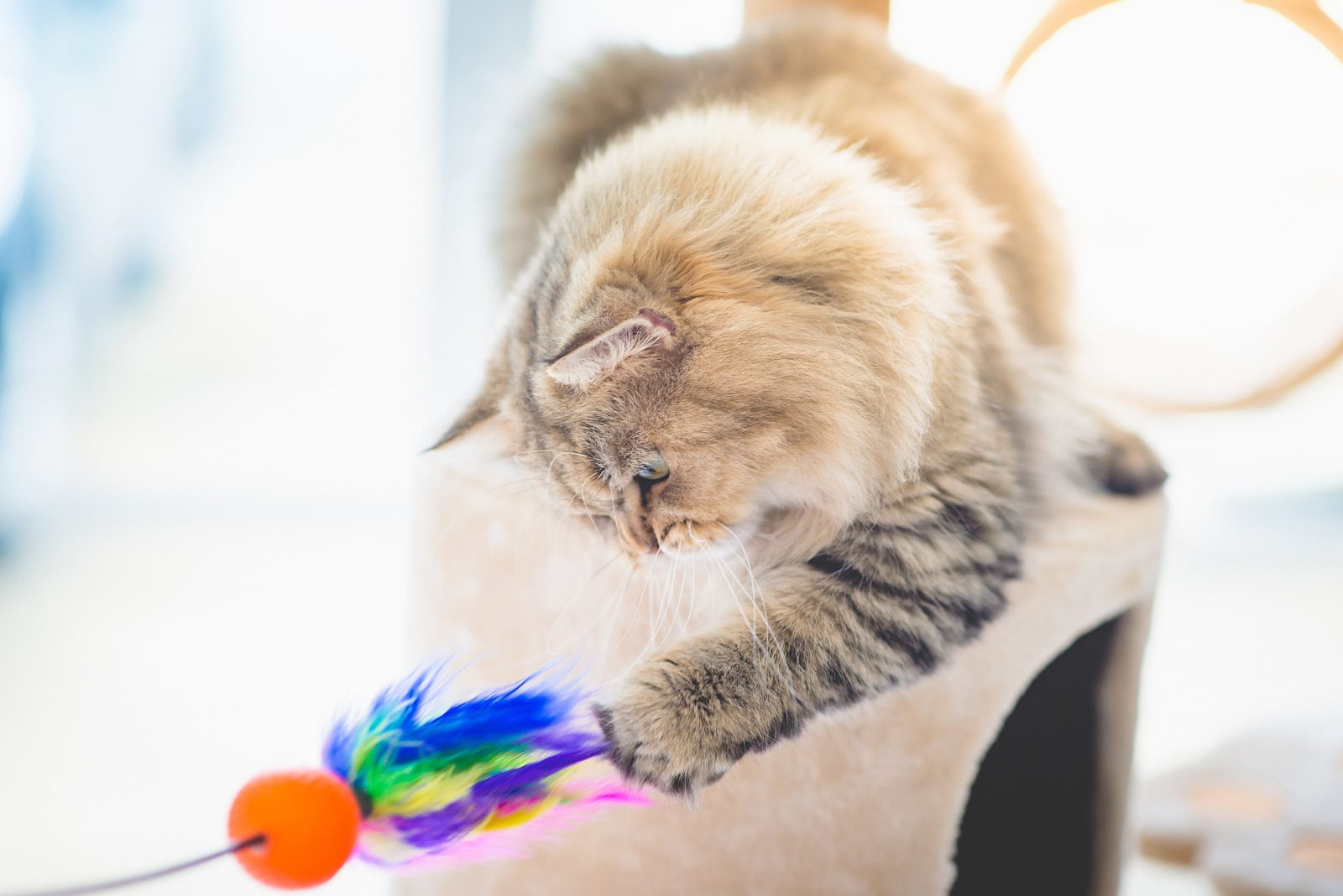
Recognizing that your cat is overweight is only half the battle. What if she has obvious weight problems? These tips will help you get your pet back to normal weight.
Take your cat to the veterinarian
Your veterinarian will examine your cat to determine or rule out any underlying health issues that may be causing the extra weight. Once the disease has been ruled out, your doctor will give you advice on how much your cat should weigh and help you create a healthy eating plan to get him back to his healthy weight.
Control her diet
Drastically reducing the amount of food you give an overweight cat may sound like a good idea, but it can actually be dangerous for her health. Pet Health Network® writes that for a well-fed cat not to eat even for two to three days, whether due to stress, starvation or rejection of a new food, there is a risk of acquiring liver disease. It is safer to help your pet gradually lose weight by giving him a special cat food for weight control. For a severely obese cat, your veterinarian may recommend a special diet food for weight loss. In any case, it’s best to discuss your cat’s needs with your veterinarian before starting any weight loss program with her. Always transition your cat to a new food gradually so that she can get used to it.
Raise her activity level
It’s not always easy to get cats to move. After all, you can’t just take her for a walk like a dog. The good news is that cats don’t need that much physical activity to stay healthy, although the amount of exercise varies depending on the cat’s age and breed. Cat Behavior Associates suggests giving your cat fifteen minutes twice a day of interactive play to hunt and run after her favorite toy. It will not be superfluous to spend money on acquiring a special cat tree so that the animal has a place and the ability to jump and climb. The combination of playtime and cat tree is practically the equivalent of a home gym for your cat.
If you’ve ever wondered if your pet is overweight, you’ve taken a big step in the right direction to keep your pet healthy. The simple fact that you don’t turn a blind eye to your cat’s growing size shows how much you care about her. Taking steps to stop and reverse your cat’s weight will not only improve her quality of life, but will help her stay healthy and happy around you for years to come.



